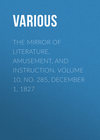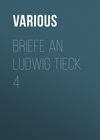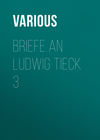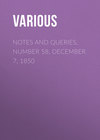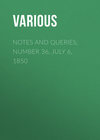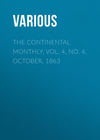Buch lesen: «The Mirror of Literature, Amusement, and Instruction. Volume 10, No. 285, December 1, 1827», Seite 2
COLD WINTER IS COMING
(For the Mirror.)
Cold Winter is coming—take care of your toes—
Gay Zephyr has folded his fan;
His lances are couch'd in the ice-wind that blows,
So mail up as warm as you can.
Cold Winter is coming—he's ready to start
From his home on the mountains afar;
He is shrunken and pale—he looks froze to the heart,
And snow-wreaths embellish his car.
Cold Winter is coming—Hark! did ye not hear
The blast which his herald has blown?
The children of Nature all trembled in fear,
For to them is his power made known.
Cold Winter is coming—there breathes not a flower,
Though sometimes the day may pass fair!
The soft lute is removed from the lady's lorn bower,
Lest it coldly be touched by the air.
Cold Winter is coming—all stript are the groves,
The passage-bird hastens away;
To the lovely blue South, like the tourist, he roves,
And returns like the sunshine in May.
Cold Winter is coming—he'll breathe on the stream—
And the bane of his petrific breath
Will seal up the waters; till, in the moon-beam.
They lie stirless, as slumber or death!
Cold Winter is coming, and soon shall we see
On the panes, by that genius Jack Frost,
Fine drawings of mountain, stream, tower, an tree—
Framed and glazed too, without any cost.
Cold Winter is coming–ye delicate fair,
Take care when your hyson you sip;—
Drink it quick, and don't talk, lest he come unaware,
And turn it to ice on your lip.
Cold Winter is coming—I charge you again—
Muffle warm—of the tyrant beware—
He's so brave, that to strike the young hero he's fain—
He's so told he'll not favour the fair.
Cold Winter is coming—I've said so before—
It seems I've not much else to say;
Yes, Winter is coming, and God help the poor!
I wish it was going away,
Nov 5th 1827. C. COLE.
NAUTICAL PHRASES
(To the Editor of the Mirror.)
Sir,—The annexed Definition of Nautical, Names, &c. will not, I dare say, to most of your readers, be uninteresting. G.W.N.
The Starboard is the right side of the ship, as the lar-board is the left.
The Parrel is a movable band-rope, used to fasten the yard to its respective mast.
Backstays are long ropes, reaching from the right and left sides of the vessel to the mast heads.
Travellers are slight iron rings, encircling the backstays, and are used for hoisting the top-gallant yards, and confining them to the backstays.
Rolling-tackle is a number of pulleys, engaged to confine the yard to the weather side of the mast; this tackle is much used in a rough sea.
Booms are masts or yards, lying on board in reserve.
The Courses are the mainsail, foresail, and the mizen.
The Staysail is of a triangular form, running upon the fore-topmast-stay, just above the bowsprit.
Reef-tackles are ropes employed in the operation of reefing. &c.
Clue-lines are used to truss up the clues, or to lower the corners of the largest sails.
The Brake is the handle of the pump, by which it is worked.
Bowlines are ropes for keeping the windward edge of the sail steady.
The Wells are places in the ship's hold for the pumps, &c.
Earings are small lines, by which the uppermost corners of the largest sails are secured to the yard-arms.
Reefs are spaces by which the principal sails are reduced when the wind is too high, and enlarged again when its force abates.
Topsails are long and square, of the second degree in magnitude in all great ships.
Haliards are single ropes, by which the sails are hoisted up and lowered at pleasure.
Tally is the operation of hauling aft the sheets, or drawing them in the direction of the ship's stern.
Towing is the operation of drawing a vessel forward by means of long lines, &c.
Timoneer, from the French timonnier, is a name given, on particular occasions, to the steersman of a ship.
Bars are large masses of sand or earth, formed by the surge of the sea; they are mostly found at the entrances of great rivers or havens, and often render navigation extremely dangerous.
The Ox-Eye, so called by seamen, is a remarkable appearance in the heavens, resembling a small lurid speck, and always precedes two particular storms, known only between the tropics.
Azimuth-Compass is an instrument employed for ascertaining the sun's magnetical azimuth.
Studding-Sails are long and narrow, and are used only in fine weather, on the outside of the large square sails.
Stay-Sails have three corners, and are hoisted up on the stays when the wind crosses the ship.
Broaching-to is a sudden movement in navigation, when the ship, while scudding before the wind, accidentally turns her side to windward.
Wales are a number of strong and thick planks, covering the lower part of the ship's side.
Scud is a name given by sailors to the lowest clouds; which are mostly observed in squally weather.
The Sheets are ropes used for extending the clues, or lowering the corners of the sails.
Brails are ropes used to truss up a sail to a mast or yard.
Reef-Bands are long pieces of rough canvass sewed across the sails to give them additional strength.
Scudding is a term applied to a vessel when carried furiously along by a tempest.
Leeward implies when the ship lies on that side to which the wind is directed.
Windbound means when the ship is detained in one particular station by contrary winds.
Windward is when the ship is in the direction of the wind.
CHRONICLES OF THE CANONGATE
(To the Editor of the Mirror.)
Sir,—Since my last communication to you on the subject of the works, so commonly spoken of as by the "Great Unknown"—"the Wizard of the North," and other equally novel cognomina, the veil has been withdrawn; we now have the open avowal, both from his own lips, and under his own hand, of the authorship from the individual himself, who has so long, and, as it now appears, so justly, enjoyed the reputation of having written them.
To judge from what he says in the second volume of "the Chronicles of the Canongate," just published—I mean in the character of Mr. Croftangry,—it is clear that he is conscious of such slips and carelessness as I have before pointed out. I am therefore at a loss to understand why he should allow them to remain like spots that deface the general beauty of his productions, as by submitting them for perusal to the merest Tyro in grammar or composition before they were sent to press, they could not fail of being obliterated.
It is surely no very good policy for an artist, jealous of his reputation, knowingly to leave his works unfinished. Without, however, detaining you, or your readers, by such obvious remarks, I shall resume my task, hoping that you will be able to find room for the following in your useful and entertaining miscellany.
In the first volume, p. 168, of the present work, we read: "She was once the beautiful and happy wife of Hamish Mac Tavish, for whom his strength and feats of prowess gained him the title of Mac Tavish Mhor." This kind of style would scarcely be allowed to pass in Leadenhall-street. What is meant by for whom, with his immediately following, and then him a little after? Does not the author intend to say, that the strength, &c. of Mac Tavish gained him the title of Mac Tavish Mhor? If so, (and there can be no doubt of it from the context,) then he should have written the sentence thus: "whose strength and feats of prowess had gained him the title of Mac Tavish Mhor."
"He gained the road, mounted his pony, and rode upon his way," p. 183 of the same volume, is, in the latter part of it, another curious phrase. "He mounted his pony," says the author. May we not suppose he rode upon it too? But he adds "rode upon his way."
Again: "His reputed grandfather with his pockets stuffed out with Bank notes, would come to atone for his past cruelty, by heaping his neglected grandchild with unexpected wealth," vol. 2., p. 87. We heap up wealth, but not persons with it, for that would hardly be kind. To load one with wealth is a common expression.
"Is it possible that the bold adventurer can fix his thoughts on you, and still be dejected at the thoughts that a bonny blue-eyed lass looked favourably on a less-lucky fellow than himself?" vol. 2, p. 136. Such is the question put by Middlemas to his friend Hartley, when speaking together on the subject of the interesting Menic Grey, and his projected Indian trip. But how could he ask if the bold adventurer fixed his thoughts on him, when it was the person addressed who entertained the idea of becoming one? and how, if the bold adventurer was dejected? when he had already distinguished him, taking the words in their proper application, as another individual in a general sense. It is altogether a singular specimen of abstruse phraseology. Then "fix his thoughts" "dejected at the thoughts." Fie upon it!
"Hartley fell a victim to his professional courage, in withstanding the progress of a contagious distemper, which he at length caught, and under which he sank," vol. 2, p. 367. If he withstood the progress of the disease, how could he fall a victim to it? The author should have said, "in his endeavours to withstand" or "arrest the progress of it."
"So stood the feelings of the young man, when, one day after dinner, the doctor snuffing the candle, and taking from his pouch the great leathern pocketbook in which he deposited particular papers, with a small supply of the most necessary and active medicines, he took from it Mr. Monçada's letters, and requested Richard Middlemas's serious attention," vol. 2, p. 88 and 89. Who is he? the doctor? Is he not mentioned before? And there he is left to stand without his natural support, for he has taken it from him. Does not the writer of this sentence recollect "My banks they are furnished with bees." I could add another take from to the page by way of note.
The following I leave without comment.
"Judgement," vol. 1, p. 2; vol. 6, p. 6. and judgment, vol. 1, p. 85, a heraldic shield, vol. 1, p. 68; desireable, vol. 2, p. 39.
As much iron as would have builded a brig, vol. 1, page 68. A good tune is grinded, vol. 1, p. 143. Butler and Mercer had both spoke to their disparagement, vol. 2, p. 289.
Worthy Mr. Piper, best of contractors who ever furnished four frampal jades, vol. 1, p. 45.
With the next morning I will still see the double summit of the ancient Dan, vol. 1, p. 229.
And then I will find it easier to have you prosecuted, vol. 2, p. 169.
We will be happy, if it is in our power, to repay a part of our obligations, vol. 2, p. 222.
Thou art the fiend who hast occasioned my wretchedness in this world, and who will share my eternal misery in the next, vol. 2, p. 229.
He found himself under the alternative of being with him on decent and distant terms, or of breaking off with him altogether. The first of these courses might perhaps have been the wisest, but the other was the most congenial to the blunt and plain character of Hartley, vol. 2, p. 256.
He inquired at their superior for Barak el Hadgi, vol. 2, p. 263.
And inquiring at those whom he considered the best newsmongers, vol. 2, p. 276.
He faltered out inquiries at his niece, vol. 1, p. 20.
Your father asked none save at his courage and his sword, vol. 1, p. 260.
The concluding (of) a literary undertaking, vol. 2, p. 1.
I would as soon dress a corpse, when the great fiend himself—God sain us—stood visibly before us, than when Elspat of the Free is amongst us, vol. 1, p. 250. November 7, 1827. Oculus.2
